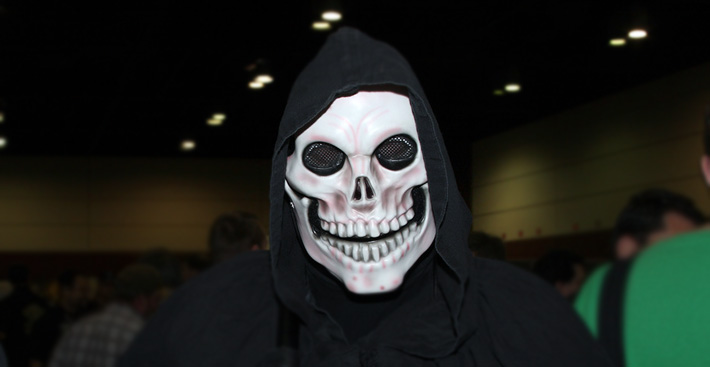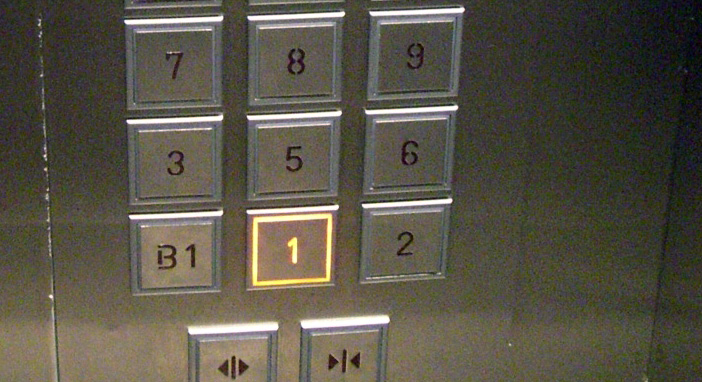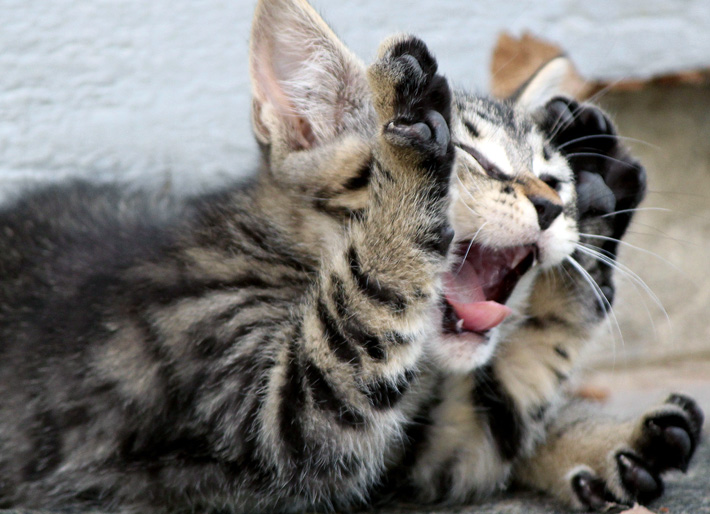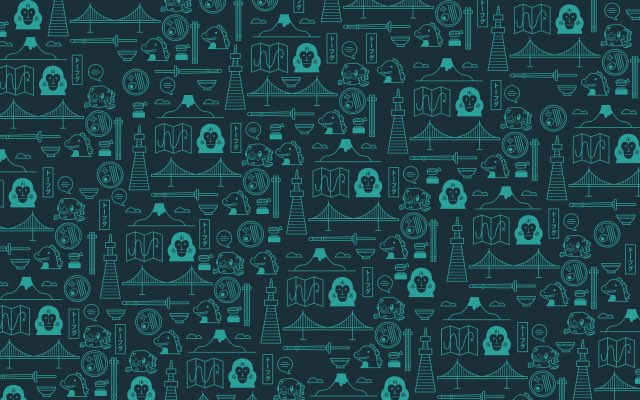The number four is terrifying… or at least that's what I was raised to believe. "Don't buy four of those!" "Don't give four of those!" "No way we're going to live on the fourth floor." "Fourth of July with all those fireworks? You're just asking for trouble." The worst part is never being able to buy those four-packs of Izze Sodas. Obviously they're full of poison, or something unlucky like that.
Thirteen on the other hand? Not a problem. Add in a Friday to the mix? Who cares. So why all the hating on the number four?
Japanese Superstitions About The Number 4

Maybe you've learned about the Japanese superstition about the number four. If you've already read Viet's article on Foureign (har har har!) superstitions, hopefully this section doesn't bore you to death (har har har har har!).
The quick version of why the number four is unlucky is that it sounds just like the word for death (shi 死). Sometime a really, really long time ago, someone figured this out and probably had his goats die on April 4th (I'm just making stuff up here). Then, he started telling everyone how four = death and that they all need to watch out because nasty things will happen. Some people believed him, it spread, and the rest is history.
It doesn't end there, though. If you read my post Goroawase: Japanese Numbers Wordplay, you'll not only know how to remember the phone numbers that show up at the end of Japanese commercials, but you'll also probably notice that there's even more potential for unlucky sounding numbers. For example:
- 24 can become nishi, aka double death (nishi ニ死)
- 42 (the answer to life, the universe, and everything!) can become shini, aka "death" or "to death" (shini 死に)
- 43 can become shisan which sounds like shizan, aka stillbirth (shinzan 死産)
- 45 can be shigo, or "after death" (shinzan 死後)
- 49 (though a bit of a stretch) can become shinu made kurushimu, aka "To suffer until death."
I'm sure there are plenty of other unlucky four-related unlucky numbers out there (444, omg!), but these are the main ones. Obviously 42 is a bad age to be, according to the above list, not to mention 45 foreshadowing your death a couple years later.
Basically, though, some Chinese dude who likes puns noticed the similarities in these words and started telling anyone who'd listen. Then, it spread around and fermented for a few thousands years, resulting in superstitions, missing floors in buildings, psychological disorders, and more. How fun!
Where Did It Come From?

Everything from Japan seems to have come from China in one way or another, and unlucky number four is no exception. In fact, China spread this superstition around to many other Asian countries as well… basically any Asian country who borrowed kanji or created their own language with Chinese as a base. It's quite fascinating.
| Language | 四 (Four) | 死 (Death) |
|---|---|---|
| Mandarin Chinese | sì | sǐ |
| Shanghainese | sy | sy, shi |
| Cantonese | sei | sei |
| Taiwanese Hokkien | sì,sù | sí,sú |
| Korean | sa | sa |
| Vietnamese | tứ | tử |
| Japanese | shi | shi |
You don't have to speak any of these languages to see the similarities here. Even in cases like with Vietnamese (where the pronunciation is nothing like the Chinese "original"), both the words for four and death are very similar (coincidence? I think not). In the chart above, the languages with the biggest differences between the two words are Mandarin Chinese and Cantonese. What's the difference? Just the tone.
China has always been one of the most influential countries in Asia, especially way back in the day. They spread products, ideas, religion, and culture. Although there's no way of really knowing, I'd say it's pretty safe to assume that China spread this superstition around Asia as well. So, turns out I can blame my irrational fear of four on the Chinese. Way to go China. Way to go.
What This Means

Because the number four is considered unlucky on such a broad scale, you'll see many examples of this fear in daily life across almost all East-Asian cultures.
- You never want to give four of something (try three or five instead).
- Elevators will often be missing a fourth floor. In extreme cases, floors 40-49 (and sometimes any floor with a four in it) will also be * missing. This is similar to how some buildings will skip the 13th floor in Western cultures.
- In China, military aircrafts start with the number 5, as in the "Shenyang J-5).
- Taiwanese and South Korean Navies don't use the number 4 for their pendant numbers.
- Sometimes in Korea the fourth floor will be labeled "F" instead of 4.
- Korail (Korea's national railroad company) skipped locomotive number 4444.
Even though this is just a superstition (at least that's why I tell myself) it really does affect how people act (you don't do things in fours… you don't give gifts in fours… etc.). Not only that, but it affects the environment as well (elevators, numbering things, etc.). Obviously the fear of the number four is a big deal – but can it ever be too much?
Tetraphobia: The Fear Of The Number Four

The word tetraphobia comes from the Greek words tetras (four) and phobos (fear). Put those together and you have a "four fear." Tetraphobiacs are afraid of the number four so much that they can't lead normal lives. Like most disorders, there's no specific reason for it (other than ones own past experiences), though some people think extreme tetraphobia has to do with bipolar disorder.
I am, thankfully, not at this stage (get away from me! You're the crazy one!), but it's interesting to see how much a single number can mess up somebody's life.
But, how many people really get screwed over by the number four? Can it actually cause death, like the reading of the number suggests? Well… yes, actually.
The British Medical Journal reported on a study that looked at mortality statistics in the United States over a twenty-five year period. They found that on the fourth day of the month, Chinese and Japanese people were thirteen percent more likely to die of heart failure on that day. In California alone, Chinese and Japanese were twenty-seven percent more likely to die of a heart attack on the fourth day of the month.
This study was done to try and see if outside psychological stress could indeed trigger deadly heart attacks. According to this data, it seems like it could be entirely possible… either that, or the number four really is unlucky.
Hopefully you don't all start thinking about this study on the fourth day of the month and get a heart attack :(
So who else is terrified of the number four? I avoid it when I can, for sure, but I at least know that it's irrational, and knowing is half the battle, right kids? I'm also lucky that I usually have no idea what day it is. That means I should be safe from the fourth-day-of-the-month heart attack syndrome, I hope.
If you're interested in silly superstitions like this one, be sure to read Viet's post covering many different kinds of superstitions. It's not just the number four that you should be afraid of.
